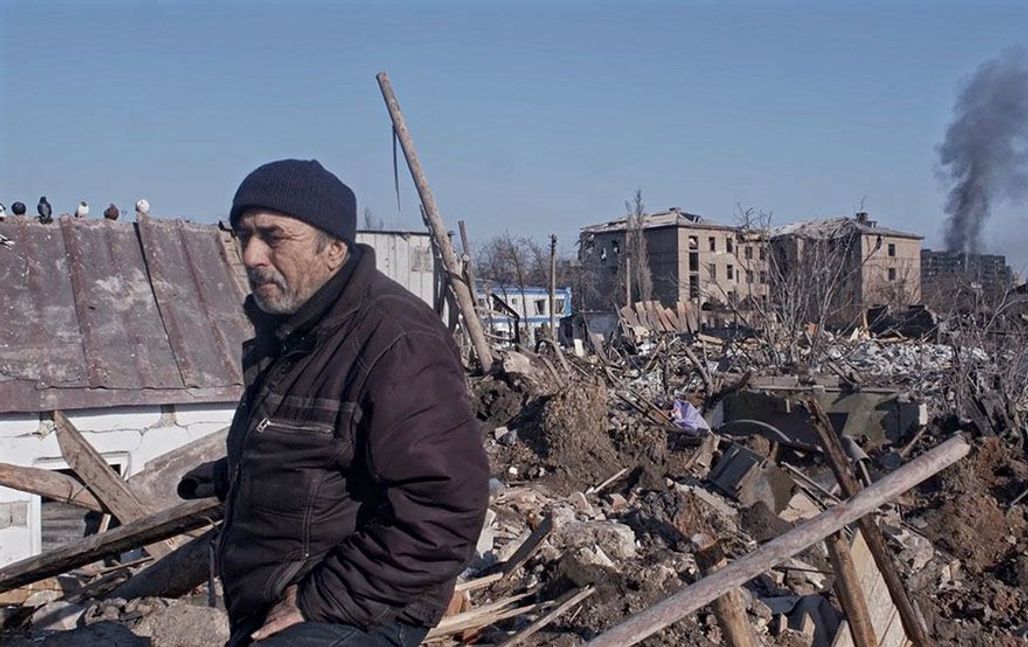
Mariupolis 2: footage saved from the ravages of the war in Ukraine

A special screening for an important film. Mariupolis 2 is a collection of footage filmed by Mantas Kvedaravičius in the besieged port city before being stopped by the Russian army and killed in early April. With him at the time, his fiance Hanna Bilobrova was able to save the work of the Lithuanian documentary maker, which will be screened today at the Festival de Cannes.
His war documentaries are hymns to peace. An anthropologist before becoming a director, Mantas Kvedaravičius conveys the atmosphere of war zones with a rare humanism and a sense for images quite uncommon for the profession. He applied these skills from his very first project, Barzakh (2011). Coproduced by Aki Kaurismäki, this film crisscrosses Chechnya in search of families whose members have gone missing and renders an account of daily life disrupted by war.
In 2014 and 2015, Mantas Kvedaravičius set out for another front. He went to Mariupol, a city in the Donetsk region where clashes between the Ukranian army and pro-Russian separatists were already raging. The result was Mariupolis, a polished, sensitive documentary, a succession of scenes from daily life in a city under the gun.
The film shows a girl playing with her father, dancers busy rehearsing, a couple fishing, and actors discussing a scene. Although war remained at a distance, it could be seen in their faces and expressions. And sometimes it takes center stage, when the bombs rain down on human lives.
The intensification of the conflict these past few months prompted Mantas Kvedaravičius to go back and find the protagonists of Mariupolis, up to the point when he himself fell victim to the war he was documenting. In a filming note, he wrote,
“It was heaven in hell, the delicate wings of the butterfly approaching, the smell of death in its raw dimension. It was life pulsating.”
After the rushes were brought back, film editor Dounia Sichov gave form to the precious work of Mantas Kvedaravičius, whom the Festival de Cannes insists on paying tribute to today.


